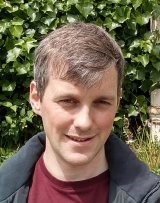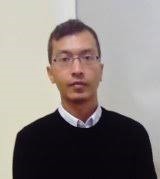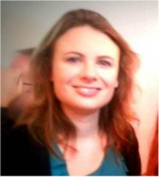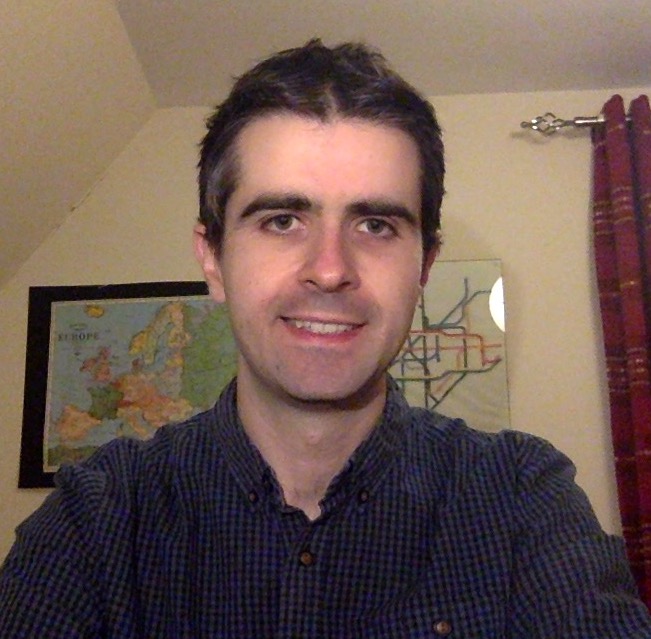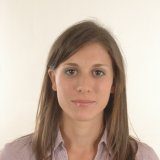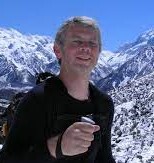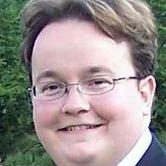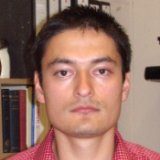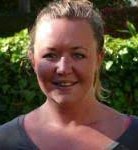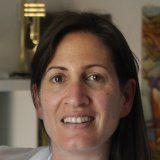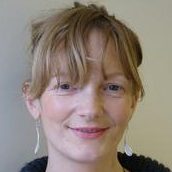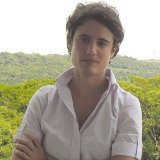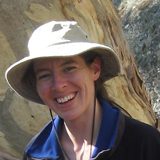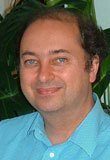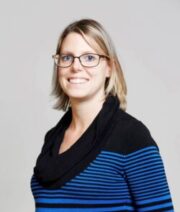Laurence’s research interests focus on hydrodynamic models, elevation data, geostatistics and remote sensing. His research focuses on data-sparse areas, with current projects including FLICH: Floods and livelihoods in the Central Highlands of Vietnam, HyFLOOD: Developing Next Generation Hydrodynamic Models in Africa, as well as supporting disaster response to recent tropical storms in Central America and South-East Africa.
John Morgan
My research interests lie in early modern environmental history, with a focus on histories of water and flooding. I am engaged in several projects related to these research interests – on early modern flooding; internal drainage boards; and environment and emotion – for further information see link below.
Shams Rahman
I am a hydrologist interested in groundwater dynamics, surface water-groundwater interactions, and the influence of groundwater dynamics on land surface and lower atmospheric processes.
Gemma coxon
I am a Lecturer in Hydrology within the Hydrology Group in the School of Geographical Sciences. My research focusses on understanding and predicting hydro-climatic extremes (floods and droughts) in changing environments. My expertise centres on building, applying and evaluating hydrological models for the improved simulation of water systems from local to continental scales across large samples of catchments.
Peter Watson
Peter’s research focuses on climate events and climate change, atmospheric weather systems, hazard and risk datasets. His work with the climateprediction.net team has produced large atmospheric model simulation datasets at a resolution high enough to resolve extratropical storm systems, with the potential to drive hydrological models in the future.
Andrew Hogg
Andrew’s research interests are in mathematically modelling environmental phenomena such as avalanches of rocks and snow, volcanic ash clouds, landslides, debris and mud flows. Modelling these flows requires the development of physically-relevant mathematical models and the computation of their solutions using analytical and numerical techniques. Much of Andrew’s research is interdisciplinary, collaborating with colleagues from Bristol and beyond.
Valentina Noacco
Valentina’s research interests include the development of tools and workflows to transfer sensitivity analysis methods and knowledge to industrial practitioners. This knowledge transfer aims at improving the consideration of uncertainty in mathematical models used in industry. Her current project aims to transfer methods, tools and expertise on sensitivity analysis to the (re)insurance sector in order to facilitate more informed decisions about the risks being underwritten.
Tim Edmunds
Tim’s work addresses issues of security sector reform, civil-military relations and capacity building, with a recent focus on the maritime environment. His current research focuses on responses to transnational organised crime at sea. Tim is also co-director of the SafeSeas Network along with Christian Bueger.
Ryerson Christie
Ryerson’s main research interests focus on the application of critical security studies to the analysis of human security, peacebuilding, and natural disasters. My work has focused on how these shape the relationships between local communities, civil society and the state. His research has had a geographic focus on Southeast Asia and Cambodia.
Ross Woods
Ross’s research interests cover topics including hydrology, water resources, hazards and hydroclimatology.
Rafael Rosolem
Rafael is an ecohydrometeorologist with an interest in understanding the processes and interactions that happen in the soil-vegetation-atmosphere domain, in particular how soil moisture and evapotranspiration are interconnected. He combines hydrological and land models with field experiments available from different regions facing environmental pressures such as droughts and deforestation. His current interests include improving predictions of extreme hydrometeorological events in developing countries (Africa and South America) where data availability is limited.
Peter Coates
Peter is an environmental historian, mainly of the US and UK, but also interested in continental Europe and beyond. His research includes creatures of watery environments (mosquitoes, eels and aquatic and semi-aquatic nonnative invasive species such as American signal crayfish, North American muskrats and American mink), natural history film-making and marine environments.
Penny J Johnes
Penny is an environmental scientist by background who has worked on the biogeochemistry of aquatic systems, and the impacts of food production and environmental change on the quality of inland and coastal waters for the past 25 years. She has interests in environmental pollution, risk, adaptation, policy and management, and in the challenges we face in resolving the inherent conflicts between meeting demand for water, food and energy security.
Paul Bates
Paul is a hydrologist by background, a Fellow of the American Geophysical Union and a Royal Society Wolfson Research Merit Award holder. He has widespread research interests in risk, resilience, uncertainty, governance and decision-making in relation to natural hazards and global water issues.
Patricia Sanchez-Baracaldo
Patricia’s research aims to understand how cyanobacteria (also known as blue-green algae) have contributed to global nutrient cycles (e.g., nitrogen, carbon, oxygen) through geological time.
Nicholas Howden
Nicholas’ research aims to provide a better understanding of how climate, land use and land management affect the quantity and quality of surface and groundwater over the short and long term. Interests include the diffuse transport of nitrate from agricultural watersheds.
Miguel Rico-Ramirez
Miguel’s research interests fall in the area of flood forecasting with radar and numerical weather prediction models for the real-time prediction and management of severe storms.
Martin Genner
Martin researches spatial and temporal patterns of biological diversity, primarily in aquatic environments with a focus on European marine and African freshwater fish. His current projects include ‘Characterising the biodiversity of freshwater fishes of Africa using environmental DNA metabarcoding: A case study within the Kilombero river system of Tanzania’ and ‘SeaDNA – Assessing marine biodiversity and structure using environmental DNA: from groundtruthing to ecosystem structuring’.
Marianna Dudley
Marianna is an environmental historian of modern Britain with a focus on environmental change and its impacts on communities, places, and politics. Her current research explores wind and wave power, and the rise of renewable energy technologies more broadly, in the twentieth century.
Marian Yallop
Marian’s current research covers various aspects of the structure and functioning of freshwater, estuarine and marine ecosystems with a particular focus on microbial ecology.
Liz Holcombe
Liz has a research background in dynamic slope hydrology and stability modelling with a particular focus on urban landslide risk management in the Humid Tropics. Her wider research interests include decision-making in uncertain environments, ‘building back better’ for resilience and sustainability, and community-based approaches.
Katerina Michaelides
Katerina’s research focuses on rainfall-driven processes at the Earth’s surface, including overland flow generation, sediment transport, erosion and biogeochemical fluxes with a specific focus on dryland basins where water and nutrients are greatly limited. Current projects include ‘Drought Resistance in East African Dryland Regions’ and ‘Re-work of Mobile Phone App Development for Drought Adaptation in Drylands’.
Jemma Wadham
Jemma’s research interests cover hydrological and biogeochemical processes that occur within glacier and ice sheet systems, and in their fore fields and which have a potential regional or global impact. She is currently working on various water projects.
Jeff Neal
Jeff’s research interests include the development of hydraulic models and the assimilation of observations with such models across and range of spatial scales. He also researches support for flood risk management, which includes work on modelling flood hazard in urban areas and methods to increase the computational efficiency of hydraulic models.
Heather Buss
Heather has expertise in low-temperature geochemistry and biogeochemistry with a focus on weathering and mineral nutrient cycling in soils. Specific research goals include resolving rates of mineral weathering and soil formation and quantifying feedbacks between weathering, erosion, and biology in the critical zone. The extreme complexity of the critical zone gives rise to the need to identify how spatial and temporal heterogeneity in physical, geochemical and biological properties impacts critical zone mineral nutrient cycles.
Guy Howard
Guy’s research interests cover the resilience of sanitation systems to climate change, decentralised treatment systems, barriers to disease transmission and burden costs, cryptosporidium genomics, water and environmental health, focus on smaller rural communities in UK and nationally, politics around transboundary rivers, and hydropower.
Francesca Pianosi
Francesca’s research interests include the application of mathematical modelling to advance the understanding and support the sustainable management of human-environment systems, and in particular water resource systems.
Erica Hendy
Erica is the Bristol lead on the EU training network grant for 15 Early Stage Researchers (PhDs) coordinated by Willem Renema, Naturalis (Netherlands) and involving 12 institutes. Using a variety of paleo-ecological and present-day data, the 4D-REEF project will investigate the hypothesis that turbid coastal environments in SE Asia provide a refuge for coral reefs in periods of warm climate.
Dawei Han
Dawei’s research interests include real-time flood forecasting, flood risk assessment, water resources management, GIS and remote sensing, natural hazards and environmental engineering.
Dave Gordon
Dave holds the posts of Professor of Social Justice, Director of the Bristol Poverty Institute and Director of the Townsend Centre for International Poverty Research at the University of Bristol. He provides research leadership for multidisciplinary poverty relevant research and advised the World Health Organisation on measurement issues concerning water and sanitation access and policy in low and middle income countries.
Charlotte Lloyd
Charlotte’s research is driven by a passion to address key questions surrounding the origins and fate of human and agricultural wastes in terrestrial systems, particularly in relation to their delivery from land to water bodies. Her work spans a wide variety of scales ranging from chemical, physical and biological processes ultimately integrated to the catchment level.
Her approach is to use cutting-edge analytical techniques, including molecular scale chemistry to trace hydrological and sediment pathways and to enhance understanding of the transport of organic nutrients and anthropogenic organic compounds in the environment. To date work has focussed on the impact of inputs from agriculture, such as fertilisers and other human contributions, including sewage treatment works. She uses both laboratory experimentation and field data collection and data modelling techniques, as this offers unique opportunities for exploring the impacts of various agricultural practices on the environment.


